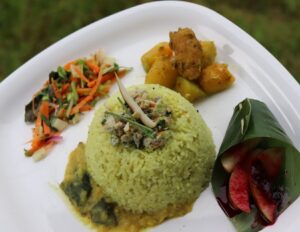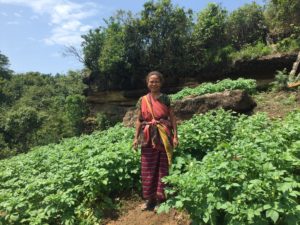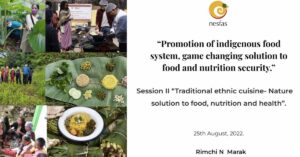Since 2018, the month of September has been celebrated as the National Nutrition Month in India. Despite India’s progress in medical sciences and economy since her independence, Malnutrition and Nutrition Deficiencies can be considered silent epidemics that plague the country even to this day. A report indicated that 80-90% of the Indian population are Vitamin D deficient while another study shows that 50% of the total population suffer from iron deficiency anaemia. As such, nutrition month is celebrated with the aim to spread awareness on the issues related to malnutrition and micronutrient deficiency in the country.
While the North East of India is one of the biodiversity hotspots of the country with a rich diversity in flora and fauna, many states from the region perform poorly on indicators regarding nutrition and dietary intake. NESFAS’s participatory mapping from 2020, conducted among selected communities in Nagaland and Meghalaya found that these communities, in spite of the abundance in varieties of food plants and groups (202 varieties), consumed only a few staple groups leading to nutrition deficiency in their diets. The 2021 NITI Aayog report also highlighted Meghalaya’s deplorable performance in parameters dealing with malnutrition. Another report by the NHFS-5 study shows Meghalaya’s underwhelming performance in malnutrition with cases related to stunting and anaemia.
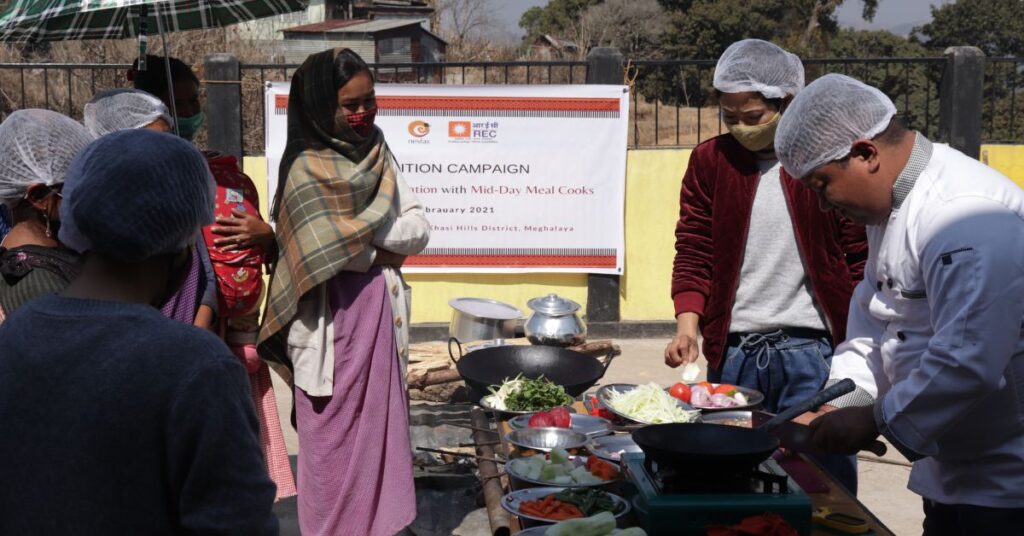
As a response to this, NESFAS has conducted several activities at the grassroots level to address malnutrition. The organization’s core works on nutrition programmes have been to tackle the underlying issues of malnutrition and nutritional deficiencies that continue to plague the state. Over the past years the organization has, under different projects, strategically developed community based ideas to utilize available resources from within communities to make use of the local agrobiodiversities to tackle malnutrition. NESFAS’ ongoing project “Empowering Indigenous Communities through Agroecology Learning Cycles (ALC) for resilient, integrated, and innovate natural resource management”, which is supported by MBMA and funded by the World Bank, focuses on access to healthy and nutritious food by producing food crops with healthy traditional practices. Currently, 100 communities are involved in reviving the traditional way of farming from local seed preservation to clean and safe food production.
Under another ongoing project, NESFAS is enhancing the mid-day meal program of 5 schools. The normal mid day meal supplies given by the government in most schools only includes two or three food groups, e.g. rice, pulses, and oil. However, the enhanced mid-day meal program seeks to improve the nutritional intake of the school going children by using local diversity of food to supplement their mid-day meals. Since NESFAS’s intervention, at least five food groups (including vegetables, pulses, fruits, wild edibles etc.) are now incorporated in the mid-day meals to increase the micronutrient intake among the school going children, thus directly combating malnutrition.
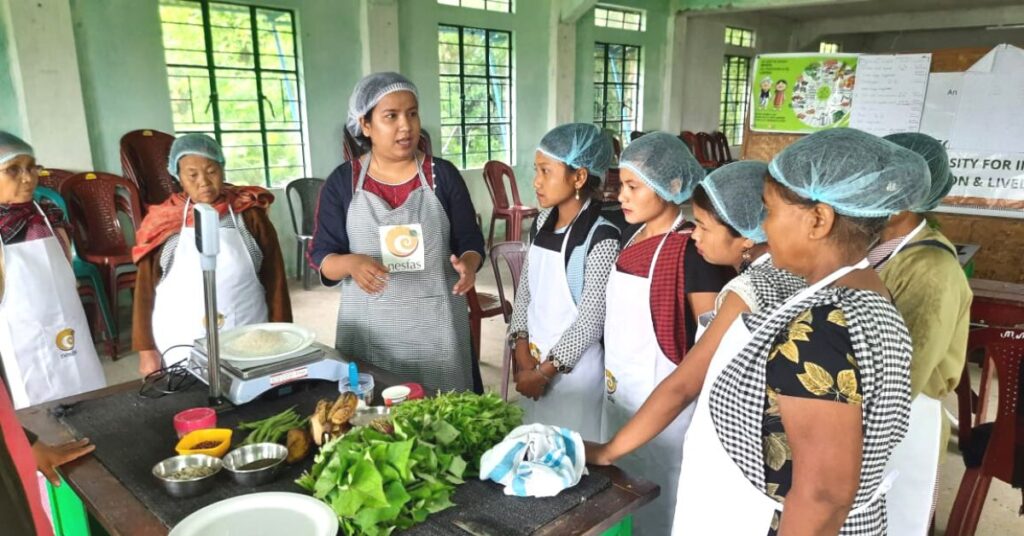
To mark the celebration of Nutrition Month along with the rest of the country, NESFAS also organized two virtual zoom workshops for Anganwadi workers and Community Facilitators with a twofold objective:
- Increase knowledge among 100 Anganwadi workers on the importance of maternal and child nutrition.
- Awareness about the importance of consuming a balanced diet among students, teachers, and parents.
NESFAS Senior Associate Chenxiang Marak and Lead Associate Badarishisha Nongkynrih conducted the two phases of virtual workshop at Garo Hills and Khasi Hills on the 15th and 16th of September 2022. The workshops saw the participation of 128 participants including Anganwadi workers and Community Facilitators. Here, the organization’s associates shared with the participants the critical stage of the ‘1000 Days of Maternal and Child Nutrition’ where malnutrition and anaemia among children and pregnant mothers can be prevented. The importance of complementary feeding by using food plants available within the community were shared with the participants. Promotion of local Indigenous Food Systems to combat malnutrition among children under 5 was also emphasised during the workshop.
At a juncture where the country and the world at large look for game changing solutions to bring about Zero Hunger and put an end to malnutrition by 2030, NESFAS continues its level best effort at the grassroots level. And while the country’s month long celebration of ‘Nutrition Month’ will soon come to a close, working with Indigenous Communities in achieving food and nutrition security will continue to be the north star of NESFAS.


